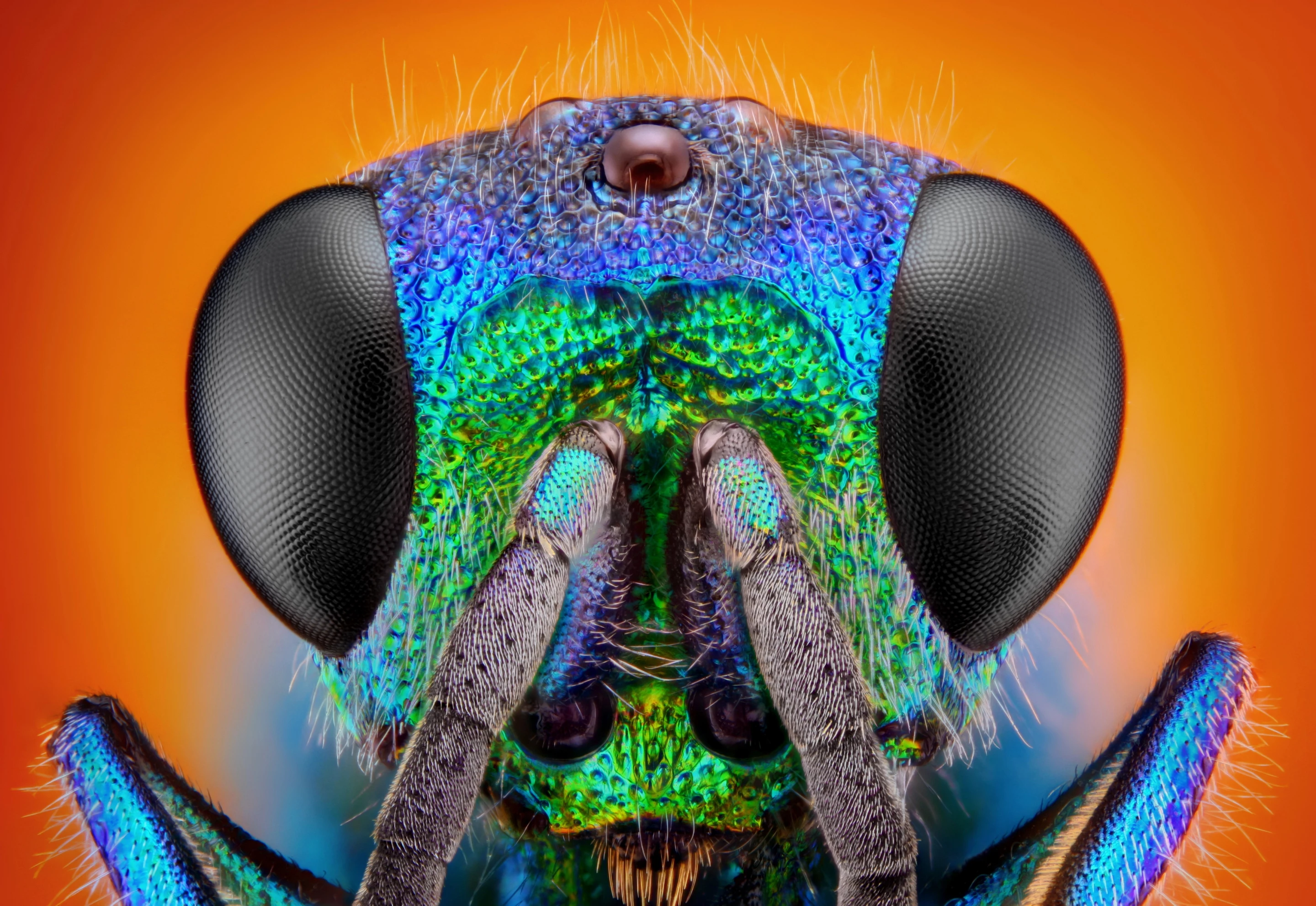A model wasp species loved and well studied by scientists has another trick under its wings – the ability to pause development in response to the environment, leading to a slower rate of aging through adulthood. These new findings show that biological aging is not a fixed trajectory and opens up new avenues for aging research and epigenetic interventions.
In the first study to directly demonstrate that an insect's epigenetic clock can be modulated by early-life environmental conditions, not just the passage of time, researchers from the University of Leicester found that the jewel wasp (Nasonia vitripennis) has the crafty ability to take a "time out" in its early life stage as larvae, known as diapause. These individuals then had molecular aging that was 29% slower than others that hadn't taking this break, and lived significantly longer.
The researchers wanted to measure how fast the wasps were aging biologically, so they looked at DNA methylation, which involves tiny chemical tags (methyl groups) added to specific spots on the DNA. These tags change in predictable ways as an organism ages. Using whole-genome bisulfite sequencing, the scientists could "see" all the methylation marks across the entire genome, down to the individual letters of DNA. Out of more than 700,000 spots (CpG sites) showing methylation, they narrowed things down to the areas that changed most with age – and, ultimately, the 27 CpG sites formed the epigenetic clock of the wasp.
To put this to the test, the researchers used an environmental cue – exposing the mothers to cold and darkness – to trigger diapause in her offspring, which was maintained for three months. They then came out of forced hibernation and resumed normal development, entering the adult wasp stage of their life cycle.
However, something remarkable happened: These wasps lived 36% longer (an average of 30 days versus 22 days) and aged nearly a third slower on a molecular level than insects that had not undergone the pause.
“It’s like the wasps who took a break early in life came back with extra time in the bank,” said senior author Eamonn Mallon, a professor in evolutionary biology at the University of Leicester. “It shows that aging isn’t set in stone, it can be slowed by the environment, even before adulthood begins.”
They were also epigenetically older soon after diapause (day six), likely due to methylation changes upon reawakening, but by day 30 they were an average of 2.7 days biologically younger than control individuals. When you convert this time frame to human years, this is a significant slowing of the aging process.
An epigenetic clock is a biological stopwatch that measures how old your body (or a part of it) appears to be on a molecular level, measuring changes in DNA methylation. You can think of DNA as our blueprint, and methylation the wear and tear it begins to exhibit as we age. Epigenetic clocks track this to estimate how biologically old an organism is, regardless of its calendar age.
This measure of aging has become a burgeoning field of study in gerontology, as we look for ways to age healthier for longer.
In the wasps that had undergone their youthful hibernation, their epigenetic clocks ticked more leisurely throughout life, offering the first direct evidence that biological aging can be manipulated in an invertebrate. Sure, it's a wasp – and, obviously, this kind of diapause is not translatable to humans – but understanding what is happening to the insects on a molecular level, to bolster their DNA for future life, is an exciting step forward in anti-aging research.
This wasp species may be better known to some for its rather violent and gory reproduction. The female lays her eggs inside fly pupae by drilling through the outer shell and injecting venom to paralyze the host. She then deposits dozens of eggs inside, and when the wasp larvae hatch, they feed on the still-living fly from the inside out. They eat it carefully to avoid vital parts in order to keep it alive as long as possible. Once fully developed, the young wasps chew their way out.
But they've also become a model species to study in anti-aging science, because unlike many other invertebrates, they have a functioning DNA methylation system – like humans. This, coupled with their short life span, makes them a fantastic gerontology target. They're also the subject of neurobiology research, with this landmark mapping of their brain in 2019 enabling great strides in that field.
"Understanding how and why aging happens is a major scientific challenge," said Mallon. "This study opens up new avenues for research, not just into the biology of wasps, but into the broader question of whether we might one day design interventions to slow aging at its molecular roots."
This study is the first to show the long-term effects of the kind of dormant state some animals can enter. And the researchers were able to clearly see that this molecular slowdown had clear biological pathways driving it. Some, like those involving insulin and nutrient sensing, are pathways that humans also possess, and this too is now being studied by gerontologists.
So while it may not seem likely, this tiny parasitic wasp has a lot more in common with our biology than you'd expect at first glance. And the ticking of its epigenetic clock is of massive interest to scientists.
"With its genetic tools, measurable aging markers, and clear link between development and lifespan, Nasonia vitripennis is now a rising star in aging research," Mallon added. “In short, this tiny wasp may hold big answers to how we can press pause on aging.”
The research was published in the journal Proceedings of the National Academy of Sciences (PNAS).
Source: University of Leicester





